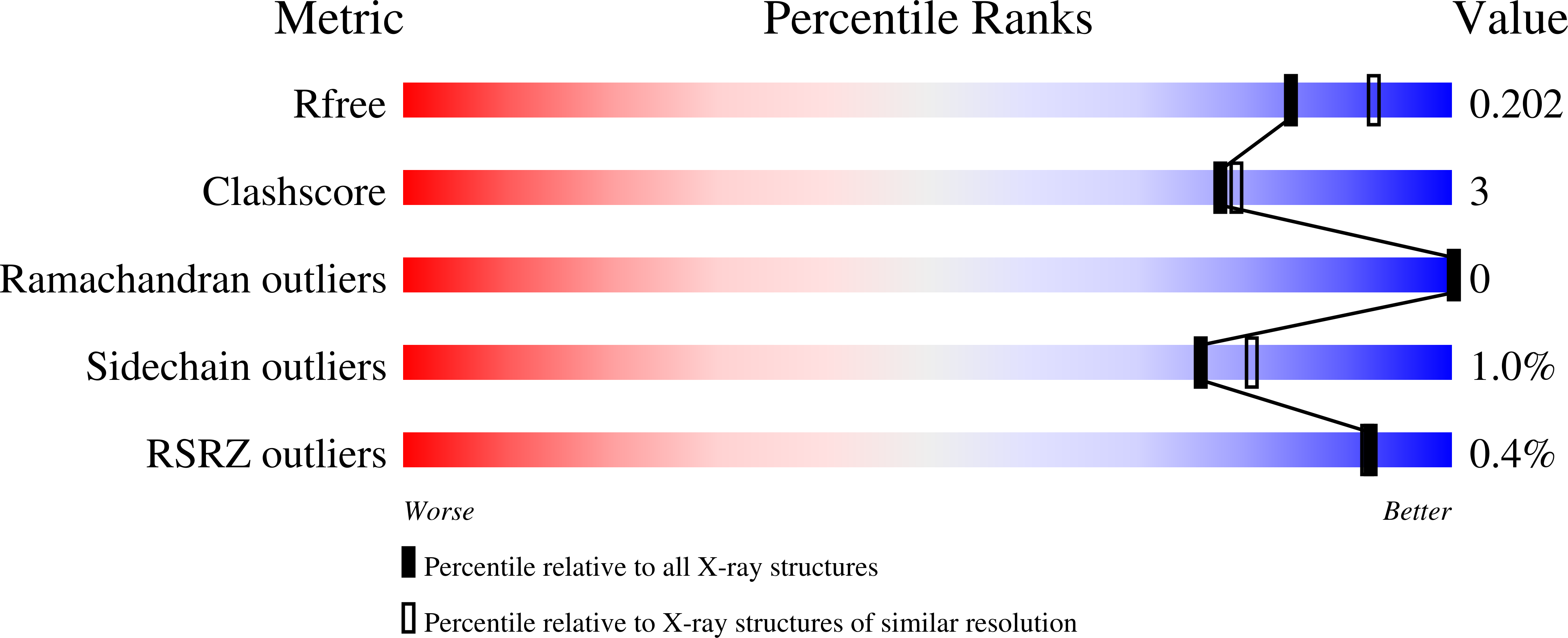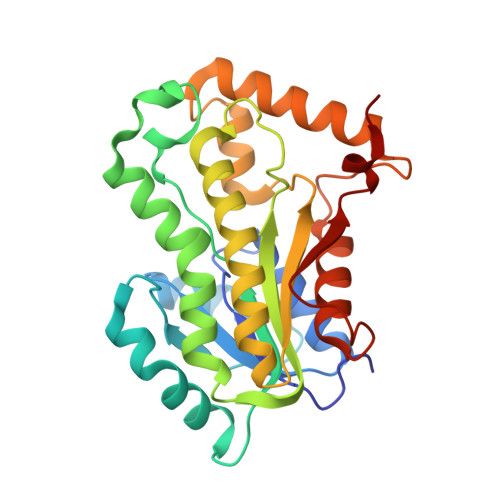Phosphorylation of InhA inhibits mycolic acid biosynthesis and growth of Mycobacterium tuberculosis.
Molle, V., Gulten, G., Vilcheze, C., Veyron-Churlet, R., Zanella-Cleon, I., Sacchettini, J.C., Jacobs Jr, W.R., Kremer, L.(2010) Mol Microbiol 78: 1591-1605
- PubMed: 21143326
- DOI: https://doi.org/10.1111/j.1365-2958.2010.07446.x
- Primary Citation of Related Structures:
3OEW, 3OEY, 3OF2 - PubMed Abstract:
The remarkable survival ability of Mycobacterium tuberculosis in infected hosts is related to the presence of cell wall-associated mycolic acids. Despite their importance, the mechanisms that modulate expression of these lipids in response to environmental changes are unknown. Here we demonstrate that the enoyl-ACP reductase activity of InhA, an essential enzyme of the mycolic acid biosynthetic pathway and the primary target of the anti-tubercular drug isoniazid, is controlled via phosphorylation. Thr-266 is the unique kinase phosphoacceptor, both in vitro and in vivo. The physiological relevance of Thr-266 phosphorylation was demonstrated using inhA phosphoablative (T266A) or phosphomimetic (T266D/E) mutants. Enoyl reductase activity was severely impaired in the mimetic mutants in vitro, as a consequence of a reduced binding affinity to NADH. Importantly, introduction of inhA_T266D/E failed to complement growth and mycolic acid defects of an inhA-thermosensitive Mycobacterium smegmatis strain, in a similar manner to what is observed following isoniazid treatment. This study suggests that phosphorylation of InhA may represent an unusual mechanism that allows M. tuberculosis to regulate its mycolic acid content, thus offering a new approach to future anti-tuberculosis drug development.
Organizational Affiliation:
Institut de Biologie et Chimie des Protéines, Université Lyon1, IFR128 BioSciences, Lyon-Gerland, Lyon Cedex 07, France. [email protected]
















